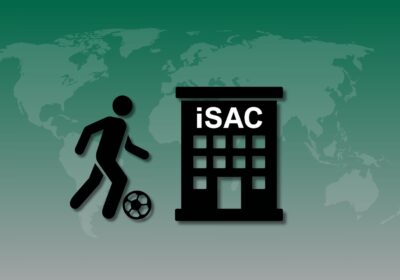E-Sports, the next big thing

E-Sports have become a well-known entity in the collegiate sports world. Broadcast on ESPN, the growing scene continues to gain a substantial following. SPECIAL TO THE ORACLE
Across the world, a new kind of sport is taking over where physical strength isn’t key, but teamwork, devotion and sportsmanship are.
E-Sports, or competitive video gaming, are a new phenomenon in sports. It has risen to become one of the newest broadcast sports on channels such as ESPN and TBS. Some believe it could have a place in collegiate athletics.
Spectators can tune in from around the world to support teams and bet in regulated channels. Players can even receive college sponsorships.
“Gaming seems to be the fastest growing form of media that has ever existed,” Anthony Tangeman, a junior who has been gaming for 19 years, said. “Seeing where the medium has been and where it’s moved to, one can only imagine where it’s going to go next. It’s truly exciting to witness and be a part of.”
USF has its own gaming club, Video Game Club at USF, that hosts school and local competitions, as well as Local Area Network (LAN) parties for casual and competitive student gamers alike. E-Sports teams have even the club.
“We currently function through the Video Game Club, but are working on making an independent organization,” said Natesh Persaud, a junior industrial engineering major and coach of USF’s League of Legends team. “Our goal is to be a part of the North American Collegiate Championship (NACC) — the collegiate league sponsored by Riot Games.”
Riot Games, the creator of League of Legends, hosts the NACC competition during the school year, ranging from one to two semesters long.
For the 2016 championship, four regional conferences are currently being held and will finish at the end of February, with finals in March.
According to the competition’s rules, collegiate competitors can win between $1,000 and $30,000 in scholarships per player, depending on the team’s tournament rank.
Riot Games isn’t the only publisher that offers hefty prizes for college teams. Blizzard Entertainment, publisher of well-known games World of Warcraft, Heroes of the Storm and StarCraft, holds the Heroes of the Dorm competition with prizes up to $500,000 in scholarships and prizes.
Blizzard Entertainment also teamed up with TeSPA, “a network of the top collegiate talent in E-Sports & gaming” to host an E-Sports tournament with $100,000 in prizes, in scholarships and gear.
There are other collegiate E-Sports organizations that pit universities against each other in a variety of competition. Collegiate StarLeague (CSL) is the first college-based E-Sports organization, according to its website.
It aims to promote E-Sports on college campuses, with games between universities to promote campus involvement. CSL offers matchups in Counter-Strike: Global Offensive, League of Legends, DOTA 2, StarCraft II and Hearthstone.
The variety appeals to many who have niche gaming interests. There are two USF teams on the CSL roster: USF Bulls Tampa and University of South Florida.
Currently, spectators can watch through the TBS cable channel or online live streams, such as Twitch.tv. ESPN also broadcasts League of Legends, which topped 2014 NBA Finals views. According to ESPN, 27 million watched the League of Legends final in Seoul, while 18 million tuned in to watch the San Antonio Spurs claim a victory over the Miami Heat.
With sold-out competitions held around the world students, such as Persaud, who has played League of Legends since 2009, would welcome the ability to attend live events at intriguing locations.
Most major E-Sports events are held in Europe and select large cities in the U.S., which can be difficult for students to attend without proper funding. Current North American events are mostly held in Austin, Texas or Columbus, Ohio.
Electronic Sports League is running its professional league in various locations around the world. Tampa fans have opportunities to participate and watch LAN matches each year, with scheduled events viewable on Lanpartylist.com.
E-Sports can allow those who aren’t adept at sports that require more physical ability to compete and show pride for their collegiate teams as they play around the world, digitally or face-to-face.
“E-Sports have the possibility to bring all kinds of people together from around the world, just as traditional sports can,” Christian Bateman, a junior marketing major and gamer of 15 years, said. “I believe that collegiate E-Sports have the possibility to become the next big thing.”







